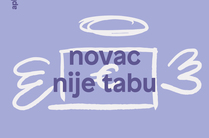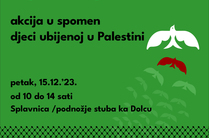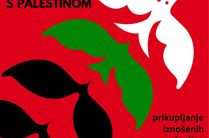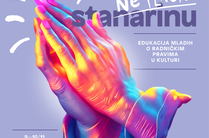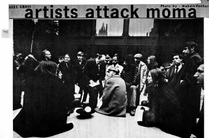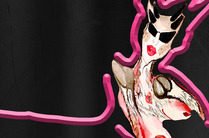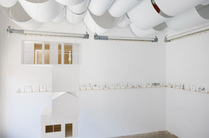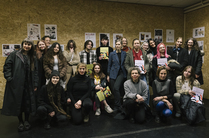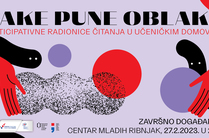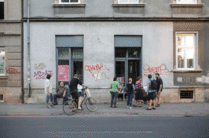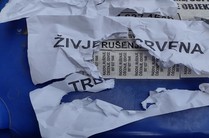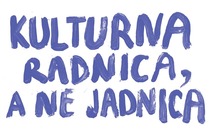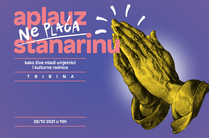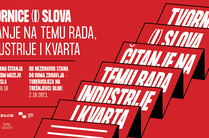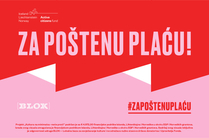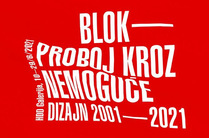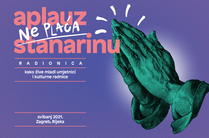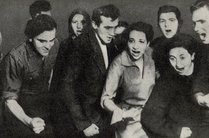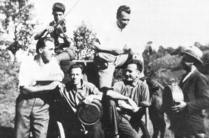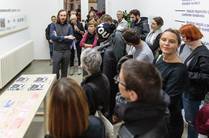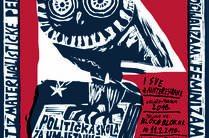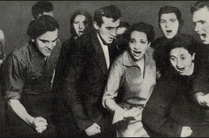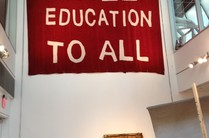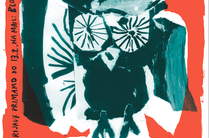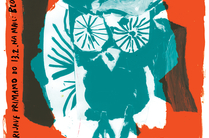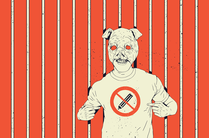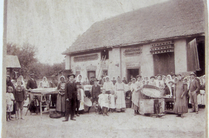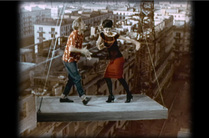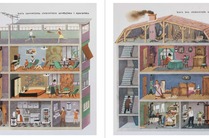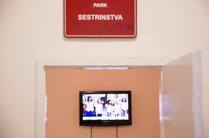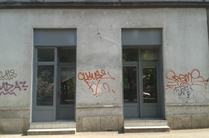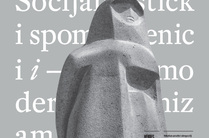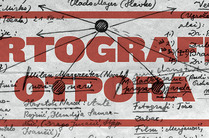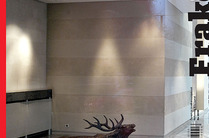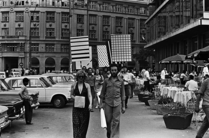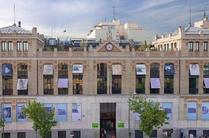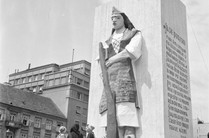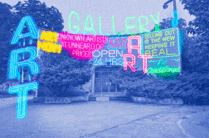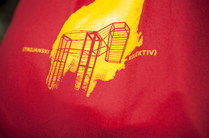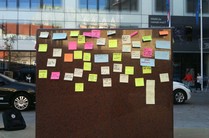POETIC AGITATION. ON REVOLUTIONARY COMMUNIST WORKERS WRITERS IN THE WEIMAR REPUBLIC
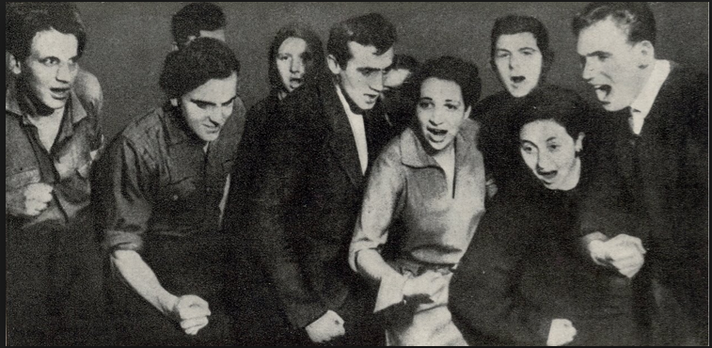
lecture by Ina Wudtke, a part of her exhibition The Fine Art of Living
Friday, November 3, 2017, at 7 p.m.
BAZA, B. Adžije 11, Zagreb
The lecture will examine the subject of workers writers in the Weimar Republic after the November Revolution, a widespread revolt that led to the collapse of the German Empire at the end of the World War I. The workers' struggles, at the heart of this upheaval, are the basis of many democratic achievements in Germany, which seem self-explanatory today, such as abolishing the three-class electoral rights and introducing women's voice rights. Demands for democratization, as direct echoes of the October Revolution, did not bypass the field of art either. Thus, Soviet artists, such as Sergei Tretyakov and Vladimir Mayakovsky, during their stay in Berlin, encouraged German artists to put their work in the service of the revolution. Around 1920, the KPD (Communist Party of Germany) began to encourage workers to write and describe the world from a class perspective in their works, thus breaking the hegemony of bourgeois writers.
Ina Wudtke embarks in her artistic research of workers’ culture from a relatively unknown opus of Brecht's associate Margarete Steffin. Both of them worked in the Berlin collective of writers after the soviet example, and while in exile in Denmark they jointly signed some of the most important texts against fascism. Wudtke will also talk about the work of Willi Bredel and Erich Weinert. Willi Bredel began writing within the movement of workers correspondents that emerged from the policy of KPD to encourage the workers to write and send their texts to newspapers (which was paid), in order to build an opposition to bourgeois correspondents. The artist Erich Weinert collaborates with Erwin Piscator in the "red revues" published by the KPD, while at political gatherings he performs short oral interplays based on his own texts. KPD, a member of which he had been since 1929, has also organized a series of so-called Weinert's Evenings, where as a solo performer of his narrative poetry on daily political themes he thrilled a massive audience.
And while Brecht's work became well-known around the world, the culture of writers workers largely fell into oblivion. The image of the Weimar Republic, as constructed by our contemporary culture, is a liberal image that emphasizes individual freedom in the organization of life. The collectivist face of organized, combative, revolutionary workers was largely rejected.
Ina Wudtke (b. 1968) studied at the Academy of Fine Arts in Hamburg, in the class of Bernhard Johannes Blume. From 1992 to 2004 she worked as the publisher of the queer-feminist magazine NEID. In his work she questions the hegemonic political-social discourses and empowers counter-discourses in thematic areas such as work, city and housing. A selection od her solo exhibitions include: 2017: AGITPOETRY, Kunsthaus KuLe, Berlin; 2016: Eviction, Projektraum Kunstquartier Bethanien, Berlin; group exhibitions: Let's gentrify everything!, Borg Biennale, Antwerp; Commons & Cologne, StadtLabor Kunst im öffentlichen Raum, Köln (with Doris Frohnapfel); I WONT DO WHAT YOU TELL ME, RAM Gallery, Oslo; Plötzlich diese Teilhabe, after the butcher Ausstellungsraum für zeitgenössische Kunst und soziale Fragen, Berlin (with Erik Göngrich).
financial support: Ministry of Culture of the Republic of Croatia, City Office for Education, Culture and Sport of the City of Zagreb, Foundation "Kultura nova", Goethe Institut Kroatien (participation of Ina Wudtke)
sponsor: Hotel Laguna
